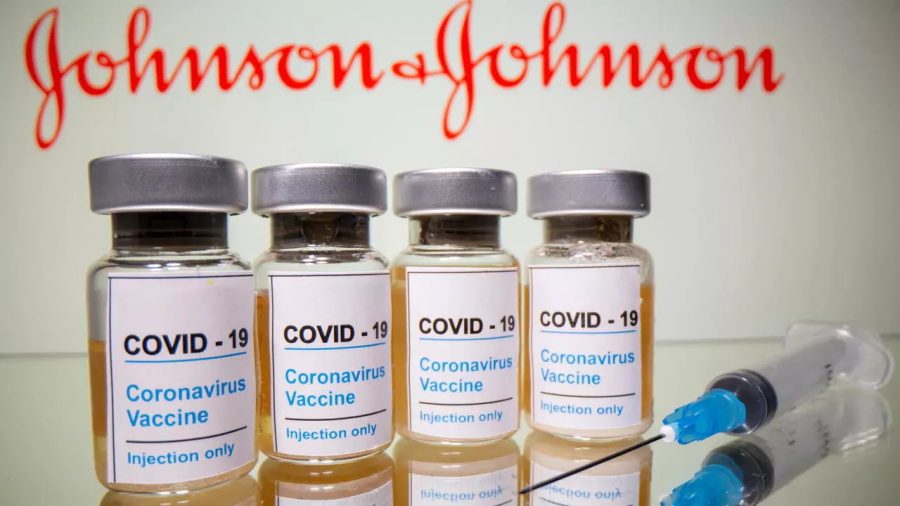Following a safety review and two meetings by the Centers for Disease Control’s Advisory Committee on Immunization Practices, the CDC lifted its recommended pause on the Janssen COVID-19 vaccine, more commonly known as the Johnson & Johnson vaccine. The distribution of the Janssen vaccine is set to resume in San Diego County this coming week, awaiting further guidance from the California Department of Public Health.
In the CDC’s press release on April 23, the CDC and the Food and Drug Administration recommended the continued use of the Janssen vaccine. The organizations cited the effectiveness of the vaccine in preventing COVID-19, as well as the low risk of the development of rare and severe blood clots that resulted in the recommended pause on April 14.
The recommended pause on April 14 followed six reported cases of a rare and severe type of blood clot in individuals after receiving the Janssen vaccine. According to a press release from the CDC on April 13, all six cases occurred among women between the ages of 18 and 48, and symptoms occurred six to 13 days after vaccination.
In an interview with The UCSD Guardian, Dr. Chip Schooley, an infectious diseases expert and one of UC San Diego’s leaders of the Return to Learn program, said that the risk of an individual developing blood clots is extremely low. He highlighted that the reported cases were among individuals with low platelet counts, a condition otherwise known as thrombocytopenia.
“Platelets normally help your blood clot, and it’s kind of unusual to have platelets be low,” Dr. Schooley said. “That’s a finding that we see in an unusual kind of reaction to a blood thinner sometimes used, called heparin, that’s used to treat people with strokes and heart attacks. There are a very small number of people who get treated with heparin in which the heparin treatment triggers the platelets themselves to band together and form clots.”
Dr. Schooley noted that heparin is a standard treatment for blood clots, however, in the six reported cases, a heparin treatment will worsen their conditions.
He also pointed to research that suggested that reactions to the Janssen vaccine occur due to a specific type of antibody found in about four percent of the population, called platelet factor-4. While all six reported cases occurred in individuals with PF4 antibodies, not all individuals with PF4 antibodies will develop blood clots, as there have only been six reported cases amongst the 6.8 million doses of the Janssen vaccine administered. This type of rare blood clots can be treated with other anticoagulants.
On April 23, the CDC announced that the vaccine can resume its distribution as the vaccine’s known and potential benefits outweigh its known and potential risks in individuals aged 18 years and older.
Schooley suggested that women between the ages of 18 to 48 who are worried about the development of rare blood clots can check for symptoms such as unusual abdominal pains or leg pains, or any central nervous system symptoms including difficulty with vision, confusion or headaches, and to contact a healthcare provider when these symptoms occur.
Sophia Robinson, a junior in John Muir College who received the Janssen vaccine, said that the process of getting the vaccine was fairly easy.
“When I had initially heard about the risks of blood clots, I was worried, especially knowing how rushed these vaccines were,” Robinson said. “Later, I saw some information comparing the risks of blood clots in the [Janssen] vaccine with other common medications like birth control. After that, I really was not worried at all.”
The FDA estimated that the risk of blood clots for women on birth control pills ranges from 0.09 percent to 0.3 percent. The risk of blood clots for the Janssen vaccine is 0.00009 percent. Blood clots associated with birth control can be treated with heparin, but ones associated with the Janssen vaccine cannot.
As of April 15, all California residents age 16 and older are eligible to receive a vaccine with a healthcare provider. All UCSD students can sign up for a vaccine appointment here.
Photo courtesy of Dado Ruvic for Reuters.















Olivia • Apr 30, 2021 at 10:41 am
During a pandemic, it is especially important to maintain your health. Vitamins will be a reliable assistant in this, here https://mediaonemarketing.com.sg/top-multivitamin-stores-singapore/ you can choose everything you need for yourself